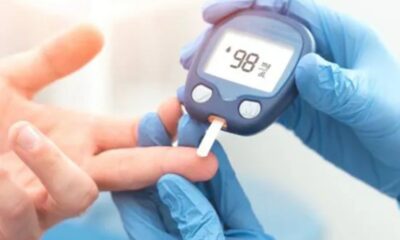According to a study that was published in the online issue of Neurology®, the medical journal of the American Academy of Neurology, on June 14, 2023, people who have inflammatory bowel disease (IBD) are more likely to have a stroke than people who don’t have the disease. The study does not demonstrate that IBD is the cause of stroke; It only demonstrates an association.
The intestines become chronically inflamed as a result of inflammatory bowel disease. It includes unclassified inflammatory bowel disease, Crohn’s disease, and ulcerative colitis.
The study found that people with IBD were 13% more likely than people without IBD to have a stroke up to 25 years after being diagnosed.
85,006 people with biopsy-confirmed IBD were included in the study. For a total of 406,987 people, they were matched with up to five people who did not have IBD and shared the same birth year, sex, or county of residence.
3,720 people with IBD had a stroke throughout an average of 12 years, while 15,599 people without IBD did. This is a stroke rate of 32.6 per 10,000 person-years for those with IBD and 27.7 for those without IBD. The number of people participating in the study and the amount of time they spend there are both represented by person-years.
When researchers took into account other risk factors for stroke, such as obesity, heart disease, and high blood pressure, they found that people with IBD had a 13% higher risk of having a stroke than people without IBD. Instead of hemorrhagic stroke, which is a stroke caused by bleeding in the brain, researchers discovered that the increased risk was primarily due to ischemic stroke, which is caused by a blockage of blood flow to the brain.
Researchers also included the full siblings of people with IBD in the study because both IBD and stroke have some genetic factors that predispose people to the disease. At the beginning of the study, none of the 101,082 siblings had any prior history of IBD or stroke. People with IBD had a higher risk of stroke than siblings without IBD, which is consistent with the main findings. Overall, their risk was 11% higher.
“The elevated risk for people with IBD remained even 25 years after they were first diagnosed, corresponding to one additional stroke case for every 93 people with IBD until that point,” Sun said.
The fact that the criteria for diagnosing inflammatory bowel disease and stroke have changed throughout the study could affect the results, which was one of the study’s limitations. Additionally, researchers lacked complete information on all potential risk factors for stroke, including alcohol consumption, smoking, and diet.

 Diabetology2 weeks ago
Diabetology2 weeks ago
 Diabetology7 days ago
Diabetology7 days ago
 Diabetology7 days ago
Diabetology7 days ago
 Diabetology4 days ago
Diabetology4 days ago
 Diabetology15 hours ago
Diabetology15 hours ago



